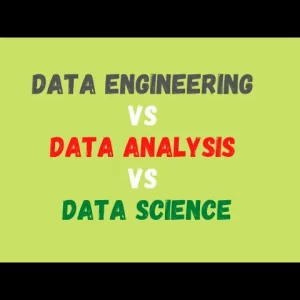Data Analyst vs Data Scientist vs Data Engineering
Data play an important role in today’s world. Today it is being used in decision making and different firms, and organizations are using their respective data for effective data driven decisions.
In this article, we will explore about Data Analyst, Data Engineer, and Data Scientist.
Data Analyst
Data Analyst will use data for analyzing purpose and identify patterns that will help brands or organization in making better decisions.
Skills:
- Programming Knowledge (Python or R)
- Knowledge of Statistics
- Scraping
- Reporting and Data Visualization
- SQL knowledge
Responsibilities:
As a data analyst, you will be:
- Collecting information from a database with the help of query
- Enable data processing and summarize results
- Possess and display deep expertise in data visualization, exploratory data analysis and statistics
Data Engineer
Data Engineer will work on the infrastructure side. From where the data will came from, how to retrieve and where to dump the incoming data. They prepare the data which will be used by Data Analyst or Data Scientist.
Skills:
- Programming Knowledge (Python or R)
- Data Warehousing & ETL (Extract, Transform, Load)
- Data architecture & pipelining
- SQL knowledge
Responsibilities:
As a data engineer, you will be:
- Writing queries
- Maintaining data pipeline and architecture
- Develop large data warehouses with the help of extra transform load (ETL)
Data Scientist
Data Scientist will input data from Data Analysts and Data Engineers and develop actionable business insights. They used data and predict about future sale or forecasting using that data.
Skills:
- Programming Knowledge (Python or R)
- Statistical & Analytical skills
- Machine Learning & Deep Learning Fundamentals
- Data optimization
- Decision-making and soft skills
Responsibilities:
- Prepare data for practical purposes.
- Create models that can operate on Big Data
- Understand and interpret Big Data analysis
- Use data and deliver results that have an impact on business outcomes
